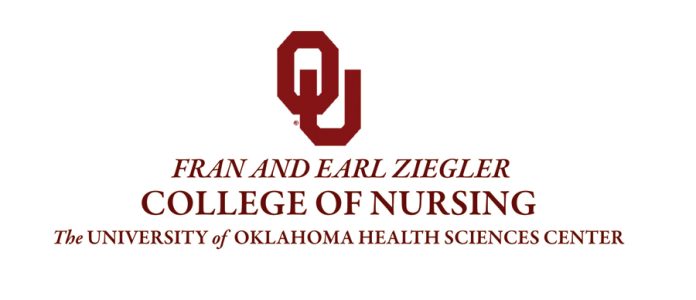OU College of Nursing Receives $10.5 Million Grant to Partner With Indigenous Communities on Maternal Health Research

In Oklahoma and across the United States, Indigenous women have the highest rates of death and health complications during and following pregnancy. However, data shows that more than 90% of those deaths are preventable and that contributing factors like hemorrhage and mental health conditions can be better addressed.
To study the causes of increased death and disease, and to ultimately reduce their prevalence, the Fran and Earl Ziegler College of Nursing at the University of Oklahoma Health Sciences Center has been awarded a seven-year, $10.5 million grant from the National Institutes of Health. Central to the grant is that researchers will work in partnership with Indigenous communities and organizations to examine maternal health inequities and maternal well-being, using an approach that recognizes Indigenous culture as a health-giving factor in itself. (story continues below)
Clinical Research Nurse – Targeted salary at $60,500 – OU HEALTH SCIENCES CENTER
The work of the grant will be the creation of CIRCLE — the Center for Indigenous Resilience, Culture, and Maternal Health Equity — to serve Oklahoma and the Southern Plains. The acronym CIRCLE symbolizes Indigenous knowledge that honors the interdependence and interconnectedness of all living things.
“Maternal health research helps to promote the well-being of women during pregnancy and childbirth, reduces maternal mortality, and improves infant health and development. Our goals with this work are to improve health outcomes and promote health equity for Indigenous women and children who are most at risk and, ultimately, to save lives,” said Karina Shreffler, Ph.D., associate dean for research and a professor in the OU College of Nursing, who is directing the work of the grant.
Because Indigenous women face different risks according to where they live and what resources they have, more information is needed about the biological, social and behavioral factors affecting health. But what researchers know now is grim: Indigenous women (those who identify as American Indian, Alaska Native or Native American) are three times more likely to die during or following pregnancy than white mothers. In addition, Indigenous women are three to four times as likely as white women to experience severe health problems during pregnancy, with rural Indigenous women at particularly high risk.
To delve into the root causes, the OU Health Sciences Center research team will work closely with the Southern Plains Tribal Health Board, which represents 43 tribal nations in Oklahoma, Texas and Kansas. Also key to the work is an external advisory committee comprised of Indigenous mothers and patients, leaders from various tribal nations, health care providers, health system leaders and Indian Health Service policymakers. Together, they will establish research protocols to build upon existing knowledge, then use that information to develop interventions focused on eliminating health disparities.
One such intervention is already being studied in partnership with the Southern Plains Tribal Health Board. The FLOURISH study (Food for Lifecourse Equity In Maternal Security and Health) is evaluating a “food as medicine” intervention for Indigenous women who have been identified as facing food insecurity, toxic stress and risk for severe health problems. FLOURISH aims to correct nutrient gaps and support socio-emotional well-being. The project is led by Emily Jones, Ph.D., R.N., professor in the OU College of Nursing, and Marianna Wetherill, Ph.D., MPH, associate professor in the OU Hudson College of Public Health.
The grant will also fund an education component for the training and development of early career researchers and practitioners. CIRCLE Scholars will be named, and pilot grants will be awarded for the creation of additional research projects in maternal health. Graduate research assistants and post-doctoral fellows will be engaged in the work of the grant as well.
The CIRCLE project also dovetails with the OU College of Nursing’s plans to develop a Women’s Health Nurse Practitioner program. Across the college’s mission of education, research and patient care, women’s health is a major focus.
“Congratulations to Dr. Shreffler and her team for their visionary effort to establish a Maternal Health Research Center of Excellence in Oklahoma,” said OU College of Nursing Dean and Professor Julie Hoff, Ph.D., MPH. “This center will strengthen vital community connections and pave the way for evidence-based advancements and training to positively impact Indigenous maternal health equity. This funding also acknowledges the advancing expertise of the OU Fran and Earl Ziegler College of Nursing in the field of health equity research.”
The CIRCLE research team involves many research and health care disciplines across OU’s campuses in Oklahoma City, Norman and Tulsa. Leading the administration of CIRCLE with Shreffler is Jed Friedman, Ph.D., associate vice provost for diabetes programs at the OU Health Sciences Center and director of OU Health Harold Hamm Diabetes Center at the OU Health Sciences Center. Leading the training and development arm of the grant is Tim VanWagoner, Ph.D., associate professor of pediatrics in the OU College of Medicine and associate director of the Oklahoma Clinical and Translational Science Institute at the OU Health Sciences Center. Heading the community partnership and engagement arm is Paul Spicer, Ph.D., a professor of anthropology on OU’s Norman campus and director of community engagement and outreach for the Oklahoma Clinical and Translational Science Institute.
Several members of the research team have already been engaged in research into Indigenous maternal health. Last fall, Shreffler and Jones received a $250,000 grant from the Eugene Washington PCORI Engagement Awards, an initiative of the Patient-Centered Outcomes Research Institute. That grant allowed researchers to establish relationships with the Southern Plains Tribal Health Board and laid the groundwork for the new NIH grant.
The grant is part of NIH’s IMPROVE (Implementing a Maternal Health and Pregnancy Outcomes Vision for Everyone) initiative. NIH funding established 10 Maternal Health Research Centers of Excellence across the nation.
Research reported in this press release is supported by the Eunice Kennedy Shriver National Institute of Child Health and Human Development, a component of the National Institutes of Health, under the award number 1U54HD113173-01.
For more information about Fran and Earl Ziegler College of Nursing at the University of Oklahoma Health Sciences Center visit https://nursing.ouhsc.edu/.













